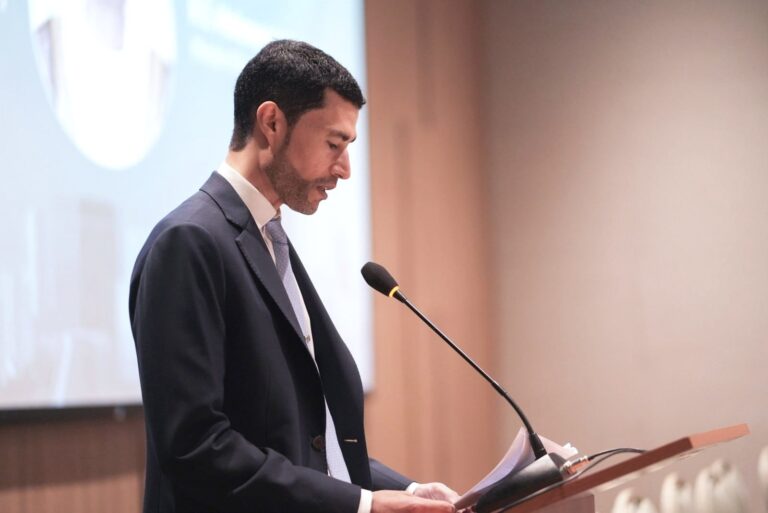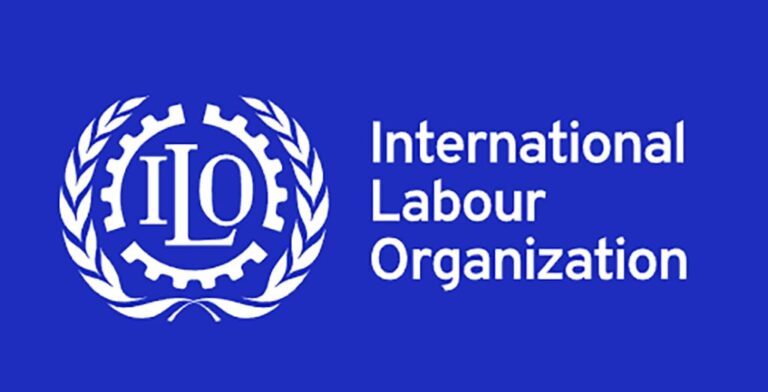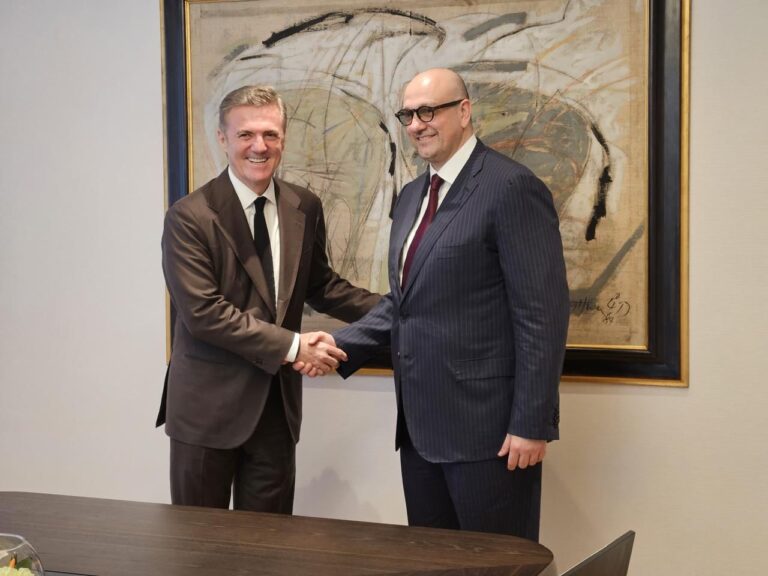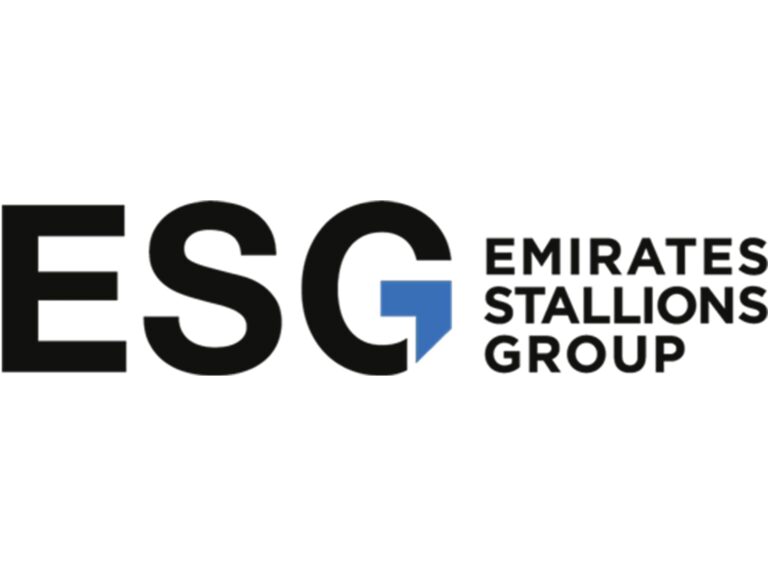CBI records 14% growth in net profit in H1 2024
DUBAI, 25th July, 2024 (WAM) — Commercial Bank International (CBI) has announced its financial results for the first half of 2024, with pre-tax net profit growing 14 percent year-on-year (YoY) from AED78.9 million to AED89.9 million.
In a press release today, the bank said that the increase in net profit comes on the back of a combination of strategic initiatives, including, a customer-centric approach, and prudent risk management.
Customer deposits saw a significant 24.6 percent YoY increase, growing from AED11.4 billion to AED14.2 billion, reflecting CBI’s successful efforts in expanding its customer base and enhancing deposit products. Meanwhile, the Bank’s loans and advances, increased steadily by 1.9 percent from AED12.3 billion to AED12.5 billion YoY.
Ali Sultan Rakkad Al Amri, CEO of Commercial Bank International, said, “I am pleased to report that CBI has closed out the first half of the year on a strong note, which saw us continue to deliver on our strategies and successfully address the growing needs of the Bank’s expanding client base. Looking ahead, we aim to further enhance CBI’s customer experience through the development of new products and services, streamlining processes, and leveraging technology to deliver a seamless and convenient banking experience.
“Ultimately, our strategy aligns perfectly with our commitment to supporting the UAE’s continued economic prosperity, and we are confident that by building on this momentum in the second half of the year, we will continue to deliver and unlock sustainable value for our customers, investors, and the communities we serve.”
UAE reaffirms support for sustainable finance, climate action empowerment
RIO DE JANEIRO, 25th July, 2024 (WAM) — Mohamed Hadi Al Hussaini, Minister of State for Financial Affairs, has reaffirmed the UAE’s commitment to sustainable finance and collaboration with Brazil, the current Chair of G20, to achieve climate finance goals, emphasising that finance has been and is still key for enabling climate action.
Al Hussaini announced the UAE’s plan to address the financing gap by the UAE banks offering sustainable financing by 2030 and contributing to the International Monetary Fund for resilience and sustainability to support countries vulnerable to climate change. He also highlighted that the UAE is the largest contributor to the GFMR trust fund.
Al Hussaini made these remarks during his participation in the COP28-G20 Conference on Sustainable Finance, held in Rio de Janeiro, Brazil, on 24th July. The conference was part of the G20 finance ministers and central bank governors’ meetings, which was co-organised by COP28 and Brazil.
Present at the conference were Samir Sharifov, Minister of Finance, Azerbaijan; Fernando Haddad, Minister of Finance, Brazil; Marina Silva, Minister of Environment and Climate Change, Brazil; Sri Mulyani Indrawati, Minister of Finance, Indonesia; Marsha Caddle, Minister of Industry, Innovation, Science and Technology, Barbados; and senior representatives of multilateral development banks.
“During the COP28 conference, hosted by the UAE last year, a global consensus was reached on the need to limit the temperature rise to 1.5°C. This requires a fair and orderly transition away from fossil fuels, with global targets set to triple renewable energy and double energy efficiency by the end of the decade. To achieve these objectives, we will need to mobilise all sources of public, private, and charitable funding,” stated Al Hussaini at the COP28-G20.
“Realising this goal demands a shift towards climate investments and this presents an unparalleled opportunity for prosperity and economic growth. We need an international framework that supports the distribution of finance in ways that mitigate investment risks in developing countries,” Al Hussaini added.
The minister noted that the launch of the Global Climate Finance Framework at COP28 received support from many G20 member countries, commending the close collaboration with a team of high-level experts, which provided a roadmap for the necessary actions to implement this framework. He highlighted that finance ministries play a pivotal role in leading the transition towards climate investments.
Al Husseini pointed out that the G20’s review of multilateral climate funds this year, under the Brazilian presidency, is a necessary move to promote the agenda for accessible and affordable financing. “We hope that COP28 and G20 will establish a robust foundation for future COP conferences, which will be essential for propelling climate finance progress,” he added.
The conference featured discussions on creating a renewable financial structure to facilitate sustainable finance, unlocking investment opportunities for climate action, expanding concessional financing, and enabling private-sector financing. It also discussed the role of multilateral development banks in becoming more effective and mobilising financial resources for national contribution plans.
The UAE, represented by the Ministry of Finance and the Central Bank of the UAE, took part in the third G20 Finance Ministers and Central Bank Governors (G20 FMCBG) meeting.
The UAE delegation was led by Mohamed Bin Hadi Al Hussaini, Minister of State for Financial Affairs, and included Ibrahim Obaid Al Zaabi, CBUAE’s Assistant Governor of the Monetary Policy and Stability Department; Ambassador Majid Al Suwaidi, COP28 Director-General; Ali Abdullah Sharafi, Assistant Under-Secretary of the International Financial Relationship Sector at the MoF; and Thuraiya Hamed Alhashmi, Acting Director of Relations and International Financial Organisations at the MoF.
Brazil, holding the current presidency, has steered the G20’s agenda on sustainable finance through the Sustainable Finance Working Group (SFWG). The group is working to advance the implementation of the Sustainable Finance Roadmap—a comprehensive, multi-year plan designed to guide the G20’s efforts on climate and sustainable finance.
This roadmap outlines four key priorities: enhancing access to international environmental and climate funds; fostering fair, reliable, and robust transformation plans; and establishing sustainability reporting standards that accommodate the diverse needs of all stakeholders, including SMEs, developing countries, and emerging markets.
Heat, a silent killer that threatens health, lives of workers worldwide, ILO report finds
GENEVA, 25th July, 2024 (WAM) — A new report from the International Labour Organisation (ILO), Heat at work: Implications for safety and health, warned that more workers are being exposed to heat stress worldwide.
The report estimated that 4,200 workers globally lost their lives to heatwaves in 2020. In total, 231 million workers were exposed to heatwaves in 2020, marking a 66 per increase from 2000. Nonetheless, the report stressed that nine out of ten workers globally were exposed to excessive heat outside of a heatwave and eight in ten occupational injuries from extreme heat happened outside of heatwaves.
The new data revealed that regions previously unaccustomed to extreme heat will face increased risks, while workers in already hot climates will confront ever more dangerous conditions.
Heat stress is an invisible and silent killer that can quickly cause illness, heatstroke or even death. Over time, it can also lead to serious heart, lung and kidney problems for workers, the study underlined.
Overall, the report indicates that workers in Africa, the Arab region, Asia and the Pacific are most often exposed to excessive heat. In these regions, 92.9 percent, 83.6 percent and 74.7 percent of the workforce are affected, respectively. The figures are above the global average of 71 percent, according to the most recent figures available (2020).
The fastest-changing working conditions are seen in Europe and Central Asia, the report said. From 2000 to 2020 the region recorded the largest increase in excessive heat exposure, with the proportion of workers affected rising by 17.3 percent, almost double the global average increase.
Meanwhile, the Americas, Europe and Central Asia are witnessing the largest rise in workplace injuries from heat stress since the year 2000, with increases of 33.3 percent and 16.4 percent respectively. This is possibly due to hotter temperatures in regions where workers are unaccustomed to heat, according to the report.
“As the world continues to grapple with rising temperatures, we must protect workers from heat stress year-round. Excessive heat is creating unprecedented challenges for workers worldwide year-round, and not only during periods of intense heatwaves, said ILO Director-General Gilbert F. Houngbo.
Improved safety and health measures to prevent injuries from excessive heat in the workplace could save up to US$361 billion globally – in lost income and medical treatment expenses – as the heat stress crisis accelerates, affecting global regions differently, the study emphasised.
The ILO estimates show that low- and middle-income economies, in particular, are the most affected, as the costs of injuries from excessive heat in the workplace can reach around 1.5 percent of national GDP.
“This is a human rights issues, a workers’ rights issue, and an economic issue, and middle-income economies are bearing the biggest brunt. We need year-round heat action plans and legislation to protect workers, and stronger global collaboration among experts to harmonise heat stress assessments and interventions at work,” Houngbo added.
The impact of heat on workers worldwide is fast becoming a global issue and one that requires action.
“If there is one thing that unites our divided world, it’s that we’re all increasingly feeling the heat. Earth is becoming hotter and more dangerous for everyone, everywhere. We must rise to the challenge of rising temperatures – and step up protections for workers, grounded in human rights,” explained the UN Secretary-General, Antonio Guterres.
Masdar, Endesa partner in €1.7 billion renewable energy transaction in Spain
MADRID, 25th July, 2024 (WAM) — Abu Dhabi Future Energy Company (Masdar), the UAE’s clean energy leader, announced today that it has reached an agreement with Endesa S.A. (Endesa) to become a partner for 2.5 gigawatts (GW) of renewable energy assets in Spain, subject to regulatory approvals and other conditions. The transaction would see Masdar invest €817 million (AED3.27 billion) to acquire a 49.99 percent stake, with an enterprise value of €1.7 billion, representing one of Spain’s biggest renewable energy deals.
The portfolio Masdar plans to acquire consists of 48 operational solar plants of 2GW aggregated capacity. Endesa and Masdar aim to add 0.5GW of battery energy storage system (BESS) to the projects. The partnership reinforces Masdar’s reputation as a trusted global energy partner for governments, investors, developers, and communities.
The deal demonstrates Masdar’s commitment to accelerating the energy transition in Spain and Europe, and these solar projects will play an important role in supporting Spain to meet its National Energy and Climate Plan (NECP) and the EU’s net zero by 2050 targets.
In addition to the acquisition Share Purchase Agreement (SPA), Masdar and Endesa have signed a Memorandum of Understanding (MoU) to explore an alliance aimed at jointly developing renewable energy projects in Spain.
The deal reflects Masdar’s ambitious growth plans in Europe, having recently announced that it has reached a definitive agreement with Greece’s GEK TERNA SA and other shareholders of TERNA ENERGY SA to initially acquire 67 percent of the company’s outstanding shares, subject to regulatory approvals and other conditions. With a strong portfolio of projects in Greece and Europe, TERNA ENERGY is targeting a renewable energy operational capacity of 6GW by 2030.
In March this year, Masdar and Spain’s Iberdrola also reached a financial close on the 476MW Baltic Eagle offshore wind project located in the Baltic Sea off the coast of Germany.
Masdar’s existing presence in Spain includes the Almenara 1.2GW solar photovoltaic (PV) project in the Castilla la Mancha region of Spain currently under development.
Masdar is jointly owned by TAQA, ADNOC, and Mubadala; Endesa is a subsidiary of the Italian energy giant Enel.
Dr. Sultan bin Ahmed Al Jaber, Minister of Industry and Advanced Technology, Chairman of Masdar and COP28 President, said, “Building on Masdar’s global expertise and pioneering approach to renewable energy innovation and development, this partnership underscores our commitment to unlocking clean energy capacity in Spain, Europe, and around the world, supporting the global mandate enshrined in the COP28’s UAE Consensus to triple renewable energy capacity by 2030 enabling a just, orderly and equitable energy transition. Masdar is accelerating its ambitious growth plans as we target 100GW of renewable energy capacity by the end of the decade.”
Flavio Cattaneo, CEO of Enel Group, said, “We are pleased that Enel, through its subsidiary Endesa, has started this partnership with a major player such as Masdar and, looking ahead, we hope that we will be able to carry out similar transactions in other geographies.”
Mohamed Jameel Al Ramahi, Chief Executive Officer of Masdar, commented, “By forging a strategic partnership in Spain with Endesa for 2.5GW of solar and battery storage assets, we are taking a significant step forward in our ambitious growth plans in one of Europe’s largest renewables markets. This deal with Endesa will play a significant role in supporting Spain and the wider EU in meeting their net-zero ambitions. We are delighted to also sign an MoU with Endesa to become their preferred partner for future solar projects.”
Masdar has retained BNPP as its transaction adviser, Linklaters as legal adviser, UL as technical adviser, PwC as tax adviser, and PexaPark as PPA adviser.
The acquisition was partially funded via acquisition financing from BNPP, Santander, Intesa, ADCB, FAB and SMBC. Lenders were advised by Ashurst.
Emirates Stallions Group reports 128% growth in operational profit in H1 2024
ABU DHABI, 25th July, 2024 (WAM) — Emirates Stallions Group (ESG), a subsidiary of International Holding Company (IHC), today announced a remarkable operational profit of AED119 million for the first half of 2024, achieving a growth of 128 percent year-on-year (YoY).
The Group reported a substantial revenue increase to AED640 million, an impressive 140 percent year-on-year rise driven by organic growth and strategic expansion.
ESG’s total assets continued to expand, reaching AED3.38 billion, a 10 percent increase YoY. This growth underscores the Group’s ongoing focus on expansion, portfolio development, and its long-term investment strategy. Highlighting its strong financial position, ESG’s total equity has risen to AED2.4 billion, reflecting a 5 percent uptick YoY. Additionally, the company’s book value per share stands at AED9.59, a 5 percent growth YoY.
Matar Suhail Ali Al Yabhouni Aldhaheri, Chairman of ESG, said, “ESG has forged ahead swiftly and decisively in 2024, with our growth in gross profit this period highlighting our relentless ambition and the robust fundamentals of our business. This unprecedented growth reflects our commitment to operational optimization and our pursuit of excellence across all verticals. As we continue to explore new opportunities, particularly in future-focused sectors, we are uniquely positioned to refine and redefine our competitive edge.”
Kayed Ali Khorma, CEO of ESG, said, “Our growth in revenue and operational profit in the first half of this year marks another significant financial milestone in a series of recent achievements for the Group. These accomplishments reflect our ability to swiftly connect our leading business propositions to growth opportunities that deliver value for our shareholders and contribute to the UAE economy. As we look ahead to the remainder of the year, our robust financial position provides a solid foundation to enhance our market-leading capabilities and achieve even greater success.”






